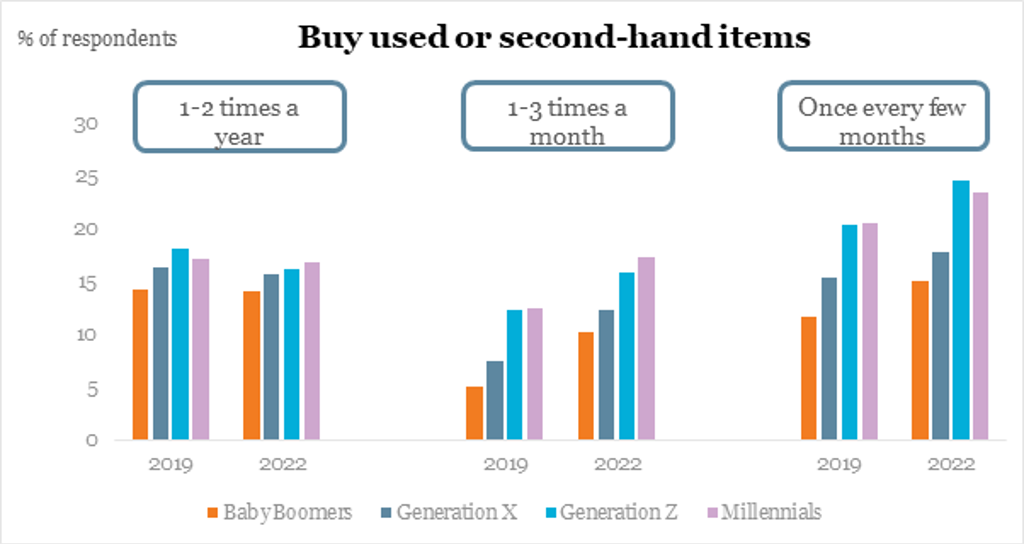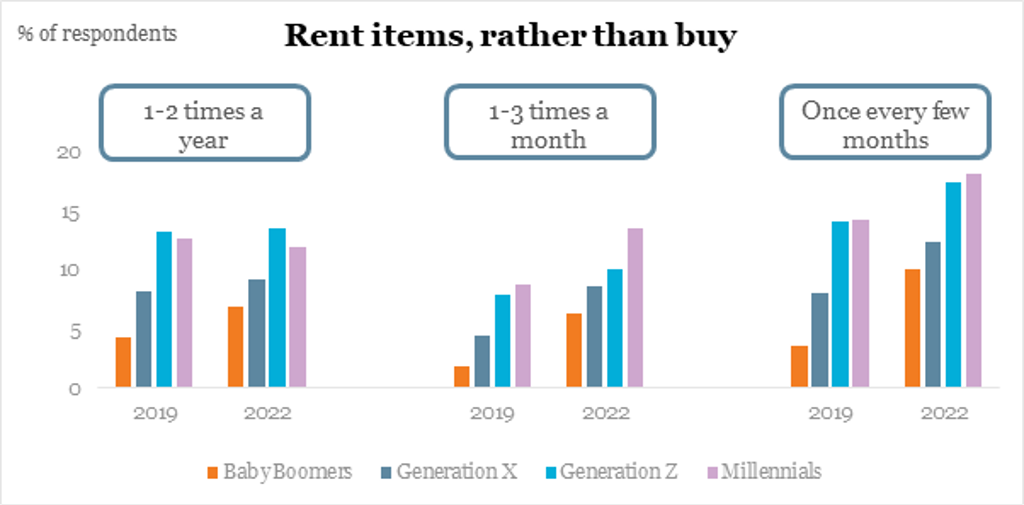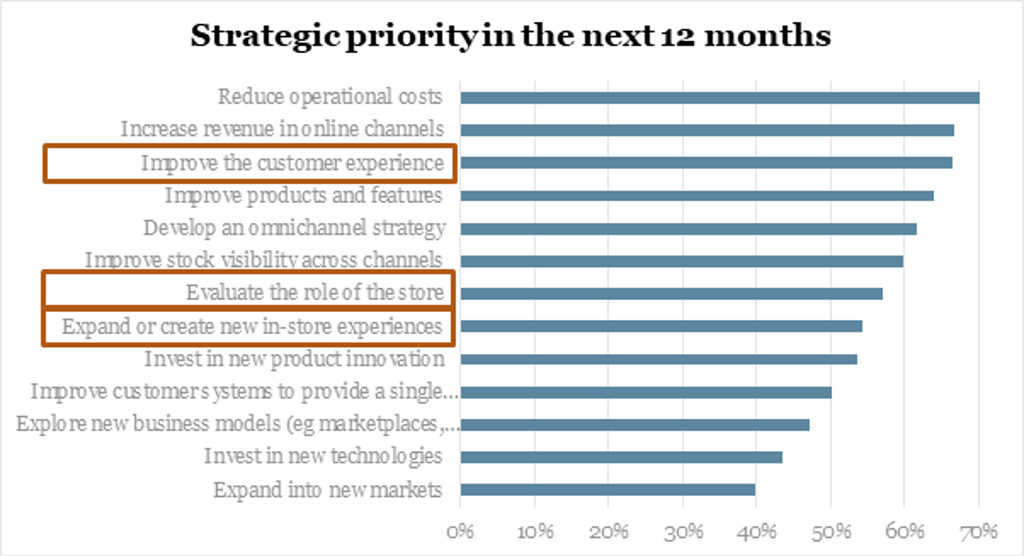Shoptalk is a conference series uniting the retail ecosystem at the most senior level. Its Europe 2022 edition in London highlighted the rapidly changing retail landscape and consumer attitudes since the outbreak of COVID-19 in 2020. The way consumers shop has been significantly influenced by the intense digital experience during the pandemic, while also strengthening their desire for purpose and values. As a result, with shopping expectations now permanently changed, brands and retailers are in the midst of a retail reinvention. This will require strategic adjustments, as sustainability is coming to the fore and the role of the store is evolving, while the emerging metaverse is adding a whole new transformative dimension.
Sustainability concerns drive new consumption habits
Shoptalk underlined that values are moving front and centre for a growing share of consumers globally. Against this backdrop, there is increasing demand for purpose-driven companies that stand for sustainability, diversity and inclusion, authenticity, and looking to be better overall. Here, consumers feel they can influence change through their choices and actions, as stated by 58% of respondents in Euromonitor International’s Lifestyles Survey 2022, up by 13 percentage points compared with the 2015 survey results.
Consumers looking for sustainable shopping can find a rapidly increasing number of options, with subscription, rental and resale models. Their rising popularity is driven in particular by young consumers, prompting brands and retailers of all sizes to explore recommerce business models. Based on Euromonitor’s Lifestyles Survey, 25% of respondents from gen Z and 23% of millennials said they buy second-hand products once every few months in 2022.
Sustainable recommerce solutions can be applied to different categories, from electronics to apparel. Successful examples include Bundlee, a baby clothing rental service, and Grover, an electronics rental service. The second-hand platform Thredup also launched a carbon calculator to help consumers understand how their fashion habits contribute to climate change. Sustainability will only become a stronger driver in retail, as consumption preferences evolve, while at the same time, brands increasingly educate consumers on this topic.

Euromonitor International Voice of the Consumer: Lifestyles Survey, 2019/2022

The role of the store redefined
Today’s post-pandemic shoppers demand more from their in-store shopping experience. To meet their needs, brands and retailers are leveraging a range of technologies and services to deliver engaging experiences that remove friction from the buying experience, encourage trials and discovery, and connect their physical and digital offerings. Hence, shopping increasingly revolves around the customer, not the product.
Based on Shoptalk expert opinions, retailers aim to dedicate at least half of their selling space to shopping experiences. For new outlets, particularly innovative store formats, shopping experience will be the guiding theme. One example is Lego, which previously focused on distribution via partners, both offline and online. In 2021, Lego opened 165 new outlets across the globe, driven by its direct-to-consumer strategy to better communicate the brand’s values and provide a superior shopping experience.
With Lego fans of all ages in mind, the brand looks to inspire creativity, encourage play and build long-lasting relationships with its customers. To achieve this, Lego has identified the store experience as key. This reflects a general trend among brands and retailers, with store experiences among the top strategic priorities for the next 12 months, according to Euromonitor’s Voice of the Industry: Retailing Survey.

The metaverse will transform digital retail
The metaverse – auspicious, yet largely mysterious to retailers and brands as a whole new interface to conduct commerce – drew particular attention at Shoptalk, in view of its disruptive potential and hence the growing need for brands to develop a metaverse strategy.
Driven primarily by the emerging next iteration of the internet, Web3, which promises a more immersive and transformational future of the web, the metaverse is the next generation of connected experiences, merging social networks with online gaming to create more engaging ways for consumers to interact with each other and with brands. It is especially gaming that serves as the metaverse’s gateway to mass adoption, propelled by digital native gen Z consumers looking for an increasingly rich and dynamic interface.
For brands, the metaverse promises considerable marketing and commerce opportunities, from in-game personalised advertisements and live events to virtual storefronts and products. In particular, lucrative direct-to-avatar products, virtual branded items that consumers purchase for their in-game personality, are drawing first-movers into the metaverse.
For consumers, the metaverse represents the next level of omnichannel retail. In 3D virtual stores within a gamified social network, it brings together an offering of virtual items with physical products, the latter available via buy-online-pickup-in-store. Although only in its early stages, the metaverse is widely considered the future of digital retail.
Following the pandemic, brands and retailers face a changed consumer and retail landscape. How can they capitalise on evolving consumer attitudes and new shopper expectations? Sustainability and purpose have become key requirements for business success. At the same time, consumers expect a seamless omnichannel shopping experience, with physical stores becoming convenient points of fulfilment, data-driven points of connection and services-led points of sale. Combined with the experiential transformation promised by the metaverse, content and commerce will increasingly merge, thereby changing digital retail and requiring brands to adjust accordingly. Consumers are rethinking their shopping journeys, prompting the need for a post-pandemic retail reinvention.
